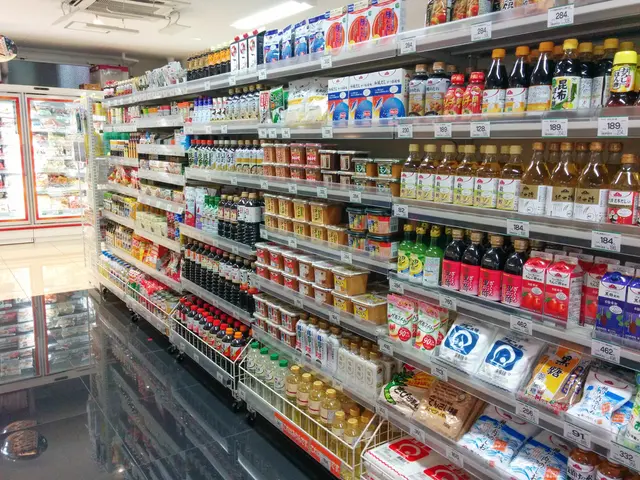Government puts a stop on latex imports due to concerns raised by farmers
Concentrated Latex Import Suspension: A Pivot for Thai Rubber Farmers
In the realm of agriculture, Thai rubber farmers have voiced their concerns over irregularities regarding concentrated latex imports. The Department of Agriculture has decided to take a stand, ordering a temporary halt on these imports. This move comes amid reports that Trump's tariff hikes might play a role in the price decline, although a direct correlation remains debatable [1][3].
Meanwhile, Thailand's natural rubber production saw a slight dip in 2025, with exports amounting to 4.7 million tonnes despite rising demand [2]. Even so, the country remains a significant player in the global rubber market, raking in considerable revenue.
The brighter side lies in the substantial increase in natural rubber exports, which grew by 23.20% from January to April 2025, reaching a value of US$2.008 billion [2]. Key export markets include China, Japan, the United States, and Malaysia. For the entire year of 2024, exports totalled around US$4.992 billion, marking a 17.32% increase compared to the previous year [2].
However, the current situation poses challenges for domestic rubber farmers. Thammarat Thongmee, the Director of the Rubber Division, has asked operators to defer the import of quality-equivalent concentrated latex from abroad until the market stabilizes [3]. This decision falls under the provisions of Section 26 of the Rubber Control Act 1999.
This reaction followed an order from Narumon Pinyosinwat, the Minister of Agriculture and Cooperatives, who directed concerned agencies to investigate after receiving an open letter from the Rubber Farmers Federation questioning the Department's approval of specific concentrated natural latex imports from overseas [3].
Price Dynamics: Beyond Tariffs
Contrary to popular belief, the price drop in rubber is not primarily attributed to US tariff measures, although the Ministry has been taking actions to mitigate their impact. The Department has requested operators to delay latex imports temporarily to minimize overall risks [3].
Uthai Sonlaksap, President of the Rubber Farmers Federation of Thailand, expressed concerns over reported unusually high volumes of imported concentrated latex. By requesting official clarification on policies, the federation seeks transparent solutions to support the farmers [3].
Key Terms: Agriculture Department, concentrated latex, imports, farmers, complaints, tariff, rubber, Rubber Control Act.
1. Earthquake in Chiang Mai2. The Rise of Charoen Sirivadhanabhakdi's Empire3. Confirmed Case of Anthrax in Sa Kaeo Province4. Border Closure Delay Amid Cambodian Troop Incursion5. COVID-19 Cases Surpass Peak: Public Health Minister
Additional Insights:- Thai rubber farmers are facing challenges from irregularities and competition as a result of concentrated latex imports, leading the Department of Agriculture to suspend these imports to protect the domestic industry [1][3].- Trump's tariffs were part of a broader trade policy but have no direct connection to the issues faced by Thai rubber farmers [1][3]. Although not directly mentioned, the Rubber Control Act in Thailand could potentially influence import regulations and support for domestic farmers [3].
- A cultural investigation of Thai rubber farmers could shine a light on how the sudden increase in imported concentrated latex affects their livelihood and traditional practices.
- In the realm of business beyond agriculture, it would be insightful to explore how the success of Charoen Sirivadhanabhakdi's empire, given his significant investments in the rubber industry, could impact the health of the domestic market and sports equipment production.








